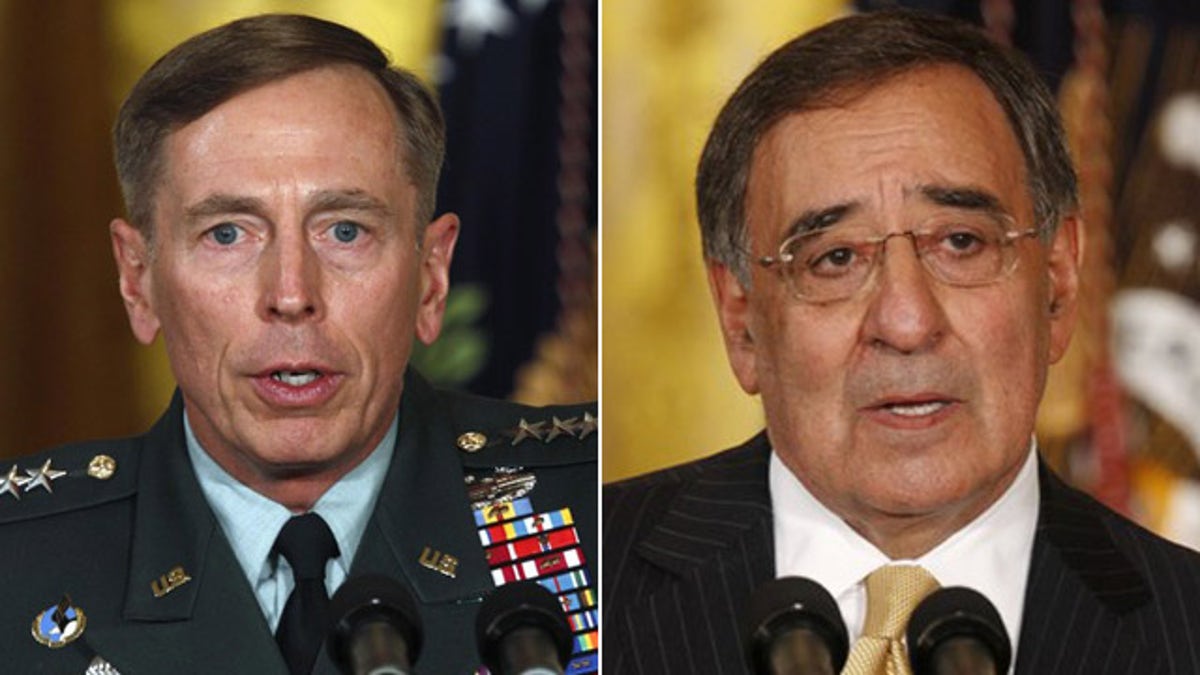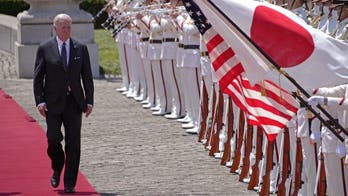
Gen. David Petraeus, top U.S. commander in Afghanistan, is in line to take over as CIA director for Leon Panetta, who has been tapped by Obama as the next defense secretary.
Military analysts say the covert operation that led to Usama bin Laden’s death reinforces a security strategy that has been in development for 10 years -- closely pairing the Pentagon and U.S. intelligence in the hunt for terror leaders.
U.S. officials on Monday described the top-secret operation as a joint effort between the CIA and an elite team of Navy SEALs who killed the Al Qaeda leader and four others in a raid on a Pakistani compound.
The attack on the secret compound in Abottabad, Pakistan, was preceded by months of intelligence gathering and high-level meetings within the CIA. The agency discovered the compound in August while monitoring a trusted Al Qaeda courier. Nine months later, after rehearsing the raid for a week, a unit of specially trained SEALs stormed the compound and killed the Al Qaeda leader with a gunshot to the head.
Military analysts and former U.S. commanders say the killing of bin Laden is perhaps the most prominent example of a joint security effort between the U.S. military and intelligence communities that has been building since the Sept. 11, 2001, terror attacks.
"This operation was the best of all worlds," U.S. Army Lt. Col. Tony Schaffer said in an interview with FoxNews.com.
"You have CIA intelligence driving a Department of Defense operation…This is the way it should have always worked," he said, adding that such collaboration was almost "non-existent" prior to the attacks on 9/11.
Retired Army Gen. Tommy Franks, who led the U.S. military operations in Afghanistan and later Iraq after the Sept. 11, 2001, terror attacks, also applauded the victory as a successful collaboration between the military and intelligence communities.
"The credit for success of the mission goes to the CIA and our special operators who did the work,” Franks said in an email. “They have been working together for years.....and had many, many successes working together before 2009."
The operation Sunday comes after President Obama announced last week a reshuffling of his defense and intelligence teams. Obama nominated CIA Director Leon Panetta to replace Secretary of Defense Robert Gates, who is retiring. He also tapped Gen. David Petraeus, the U.S. commander in charge in Afghanistan, to take Panetta’s post as head of the CIA.
Some military observers say the personnel shift signals an effort to more closely streamline the CIA and Department of Defense in future operations abroad.
"The move of Petraeus over to CIA is indicative to me that they’re going to try to build more of a bridge between the CIA and DOD," said Schaffer.
Peter Singer, director of the 21st Century Defense Initiative at the Brookings Institution, said the bin Laden raid underscores the need for the CIA and Department of Defense to continue to work closely together.
"There will always be tensions between the two because of their different organizational DNA,” said Singer, but such missions "can’t be looked at through a pure military lens or a pure intelligence lens."
"[The bin Laden operation] puts more pressure on breaking down these stove pipes," he said.
Military analysts, meanwhile, have offered differing views on what impact bin Laden’s death will have on U.S. military operations in Afghanistan and Pakistan.
Schaffer and others said the killing of the Al Qaeda leader proves Afghanistan is not where the U.S.-led war on terror should be fought.
"I think this more than justifies a withdrawal from Afghanistan immediately,” Schaffer said.




